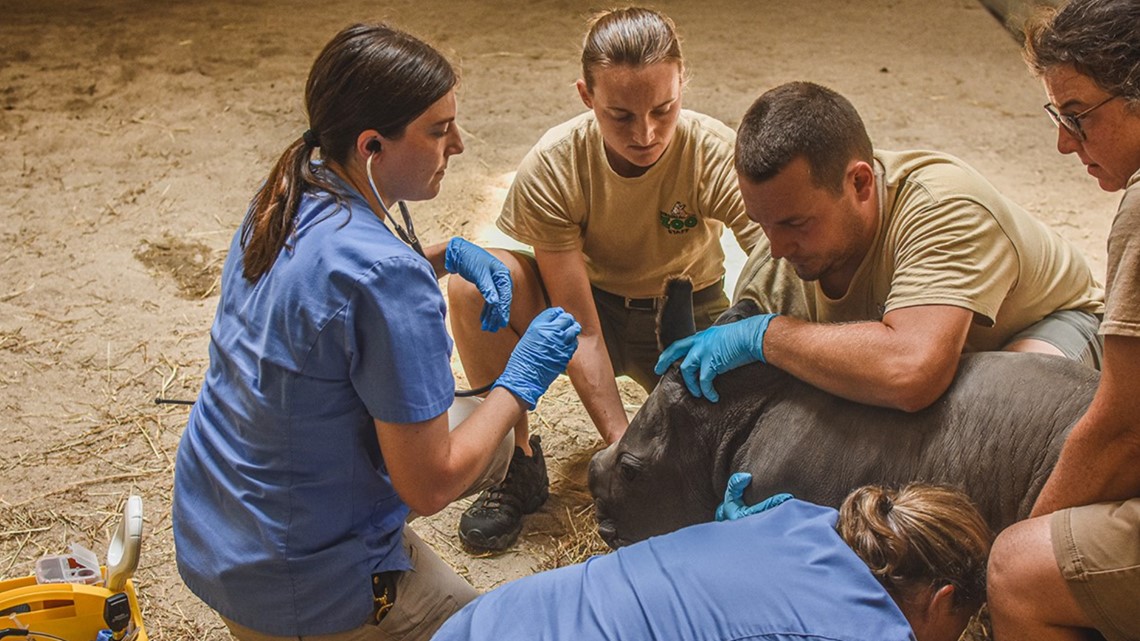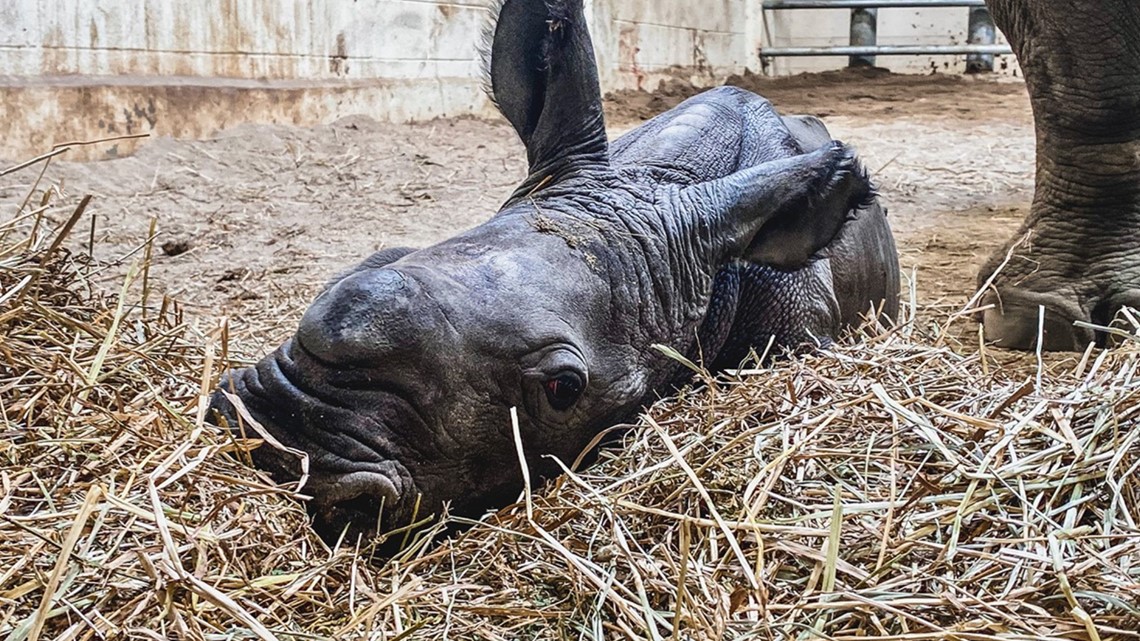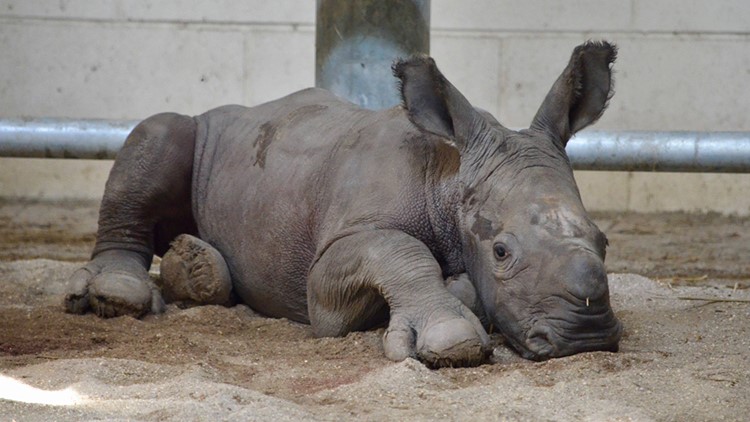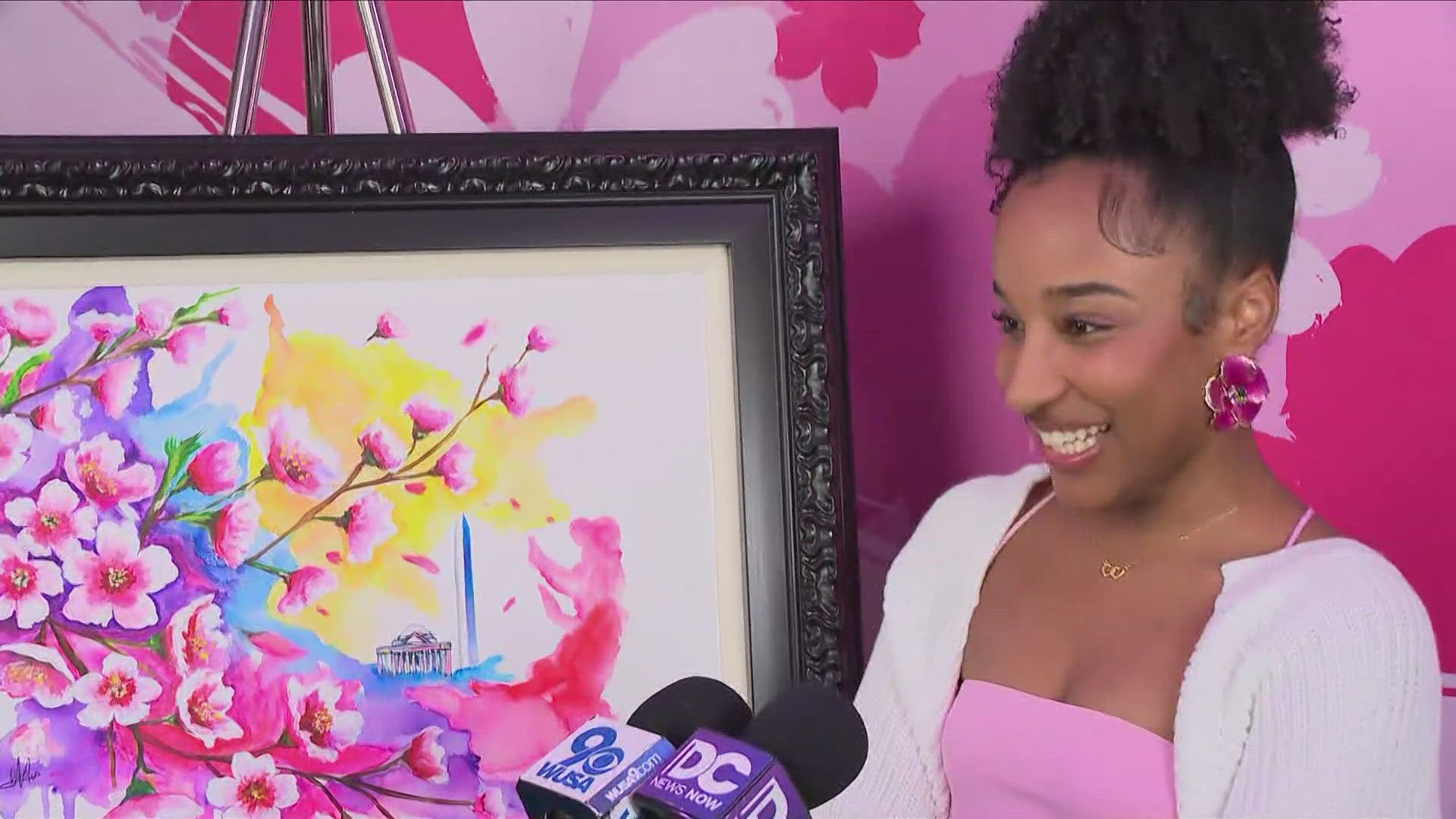NORFOLK, Va. — The Virginia Zoo has a new baby! The zoo's first-ever southern white rhinoceros calf was born on Sunday and is strong, nursing well and bonding with mom.
The zoo made the announcement Monday, saying the new calf is a boy. He weighs around 125 pounds, is 22 inches tall and 36 inches long.
According to a news release from the zoo, this is the first time this species has been born at the zoo. The baby's mom, Zina, is also a first-time mom!
The zoo has been awaiting the baby's arrival for more than a year, as a rhino's gestation period is 16 to 18 months. Zina's pregnancy was 16 months and 21 days.
“The pregnancy was confirmed via ultrasound in February,” wrote Dr. Tara Reilly. “We were able to give some general time frames, but this last month became very apparent we were in the birth window,” Reilly added.
While Zina was pregnant, the zoo worked to baby-proof the rhino exhibit and installed a camera to monitor mom and baby.
The new baby calf brings the Norfolk Zoo's rhino count to four. They have Sibindi who is 18, Zina who is 8, Bora who is 7 and now the new calf.


The zoo said Zina and her baby will stay indoors for the next several weeks so they can be monitored.
This species of rhino, the white rhino, is classified as near threatened by the International Union for Conservation of Nature due to horn poaching and habitat loss.
“We are absolutely thrilled to welcome this baby, who will serve as an ambassador to its species in the wild,” wrote Greg Bockheim, Executive Director of the Virginia Zoo. “Because of the demand for their horns, rhinos are often killed daily. A baby animal’s cuteness piques the interest of everyone, but then we are able to share their conservation story and the ways we can protect their species,” Bockheim added.
In an effort to raise money for rhino conservation, the zoo will be auctioning off the naming rights for the new baby. The public can place bids on the calf’s name through July 30.
To place your bid, click here. The baby can also be "zoodopted." All proceeds from Zoodoptions will also be donated to the zoo's conservation partner, he International Rhino Foundation.
The foundation provides support for land protection, translocation of rhinos to more suitable habitats in Africa and working to end the trade in rhino horns.





